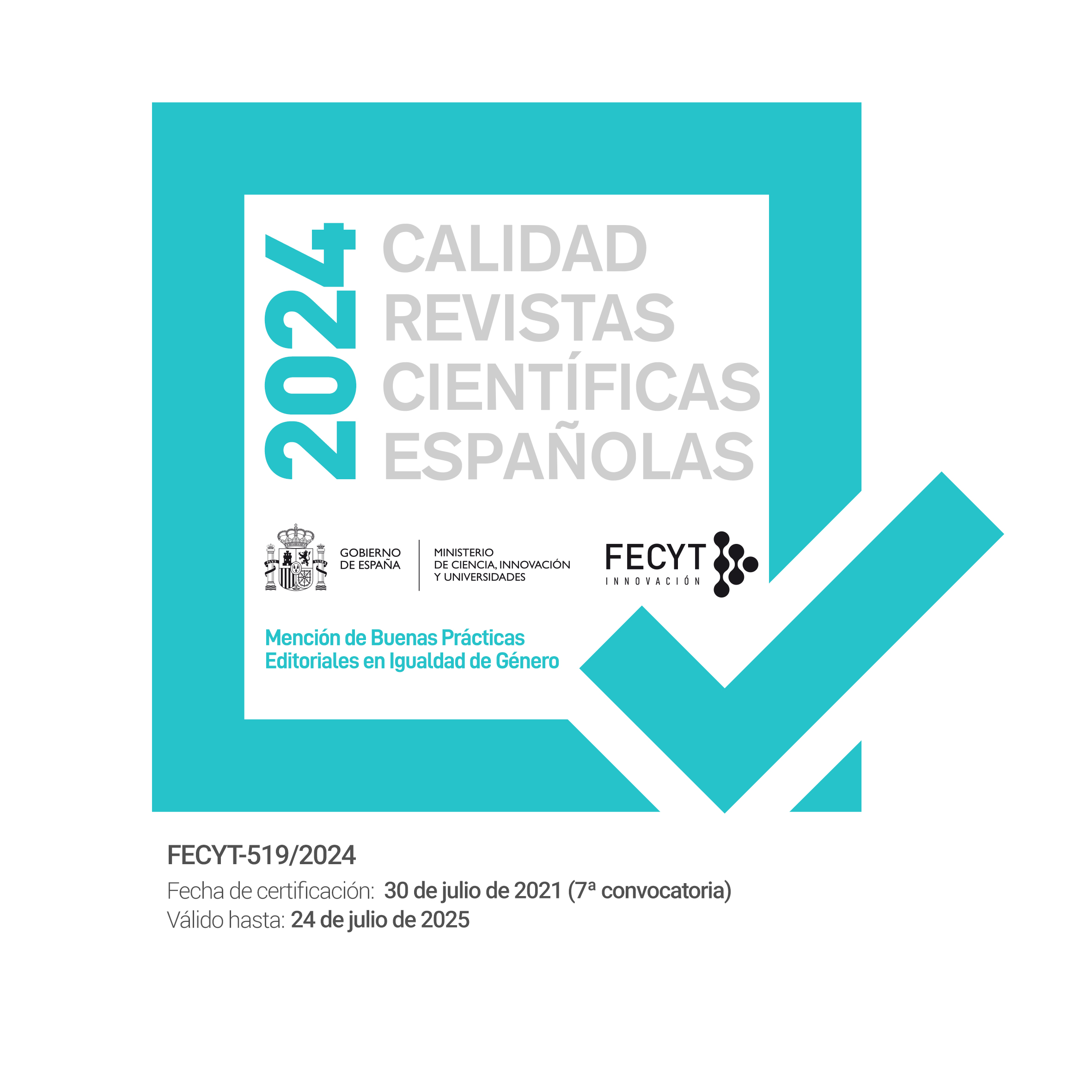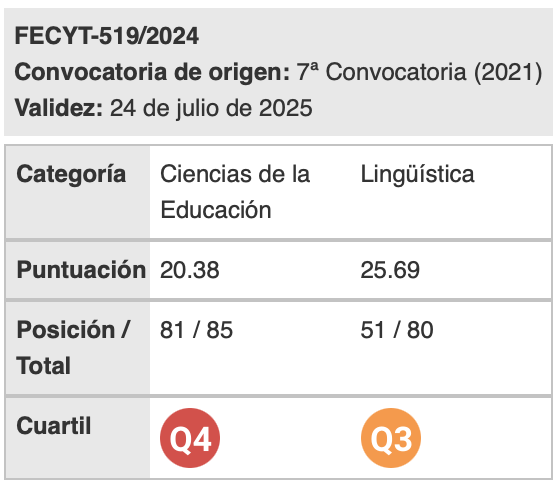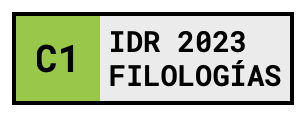Percepciones de los estudiantes de español sobre la creación de un curso para la carrera de comunicación
Palabras clave:
Houston, motivaciones lingüísticas, español de las profesiones, métodos cualitativos y cuantitativos, currículoResumen
El siguiente estudio describe las percepciones de los estudiantes de cursos de español como lengua extranjera sobre la creación de cursos de español con fines específicos (EFE) o español para las profesiones, específicamente para la carrera de comunicación en la Universidad de Houston en los Estados Unidos. Con el uso de métodos cualitativos y cualitativos se entrevistaron 60 estudiantes del área de comunicación para reconocer el interés de los participantes en un curso enfocado en su carrera y sobre los contenidos de este. Los resultados mostraron que un 88 % de los participants están interesados en tomar cursos de EFE porque lo ven como una necesidad en la ciudad de Houston y en Los Estados Unidos. Dentro de sus motivaciones principales están: mejorar oportunidades de trabajo, obtener créditos para su carrera y comunicarse con hispanos en la ciudad. Con respecto al contenido del curso, los encuestados afirmaron que desean recibir un vocabulario enfocado en lo que estudian, conocer los detalles culturales relacionados con la carrera y tener acceso a ejercicios donde mejoren sus habilidades interpersonales.
Descargas
Citas
Abbot, A. & Lear, D. (2010) ‘Marketing business Languages: Teaching students to value and promote their coursework”, Global Business Languages: Vol. 15, Article 2. Disponible en: http//docs.lib.purdue.edu/gbl/vol15/iss1/2
Alonso, C. (2006) "Spanish: The foreign national language." ADFL Bulletin 37.2-3: 15-15-20. Linguistics and Language Behavior Abstracts (LLBA).
Beaudrie, S., Ducar, C., & Relaño-Pastor, A.M. (2009).Curricular perspectives in the heritage language context: Assessing culture and identity. Language, Culture and Curriculum, 22 (2), 157-174.
Beaudrie, S. & Fairclough, M. (2012). Spanish as a heritage language in the United States: The state of the field. Washington, DC: Georgetown University Press.
Belcher, D. (2006). “English for specific purposes: Teaching to perceived needs and imagined futures in worlds of work, study, and everyday life.” TESOL Quarterly 40 (1): 133–56.
Chia, H.U., Johnson, R., Chia, H.L., & Olive, F. (1999). English for college students in Taiwan: A study of perceptions of English needs in a medical context. English for Specific Purposes, 18(2), 107–119.
https://doi.org/10.1016/S0889-4906(97)00052-5
Gardner, R. (1985) Social psychology and second language learning: The role of attitudes and motivation. London: Edward Arnold.
Gómez, J. (2001). La enseñanza: Aprendizaje del español con fines específicos. Madrid: Ed. Edinumen.
Pheils, P. B., & Naledi, M. S. (2009) Communicating with Latino patients. Journal of Nursing Education. September 2009;48(9):515-518. Available from: CINAHL Plus with Full Text, Ipswich, MA.
Grose, C. U., & Voght, G. (1991). The evolution of languages for specific purposes in the United States. The Modern Language Journal. 75, 181-195.
Lafford, B.; Abbot, A., & Lear, D. (2014) Spanish in the professions and in the community in the US, Journal of Spanish Language Teaching, 1:2, 171 186, DOI: 10.1080/23247797.2014.970361.
Lear, D. (2005). Spanish for working medical professionals: Linguistic needs. Foreign Language Annals 38: 223-235.
Long, M. K. (2017). Introduction: LSP studies and the creation of translingual and transcultural competence. Language for specific purposes: Trends in curriculum development, Georgetown University Press, Washington, D.C., 2017, pp. 112. JSTOR, www.jstor.org/stable/j.ctt1ps3169.6.
Long, M. K., & Uscinski, I. (2012). Evolution of languages for specific purposes programs in the United States: 1990-2011. Modern Language Journal, 96, 173-189.
Silva-Corvalán, C., & Enrique-Arias, A. (2001). Sociolingüística y pragmática del español. Washington, D.C: Georgetown University Press.
Upton, T. A. (2012). “LSP at 50: Looking Back, Looking Forward.” Iberica 23: 9–28.
Van Lier, L. (2004). The ecology and semiotics of language learning. New York: Kluwer Academic.
Vargas Blanco, E. M. (2018). Actitudes lingüísticas de padres y madres en familias colombianas y mexicanas en Houston: un estudio cualitativo. Forma y Función, [S.l.], v. 31, n.1, p. 155-181, ene. 2018. ISSN 2256-5464 Disponible en: https://revistas.unal.edu.co/index.php/formayfuncion/article/view/70446/64990
Vendryes, J. (1929). Le langage. Introduction linguistique a l’histoire. Paris: La Renaissance.
Descargas
Publicado
Cómo citar
Número
Sección
Licencia
Aquellos autores/as que tengan publicaciones con esta revista, aceptan los términos siguientes:
- Los autores/as conservarán sus derechos de autor y garantizarán a la revista el derecho de primera publicación de su obra, el cuál estará simultáneamente sujeto a la Licencia de reconocimiento de Creative Commons que permite a terceros compartir la obra siempre que se indique su autor y su primera publicación esta revista.
- Los autores/as podrán adoptar otros acuerdos de licencia no exclusiva de distribución de la versión de la obra publicada (p. ej.: depositarla en un archivo telemático institucional o publicarla en un volumen monográfico) siempre que se indique la publicación inicial en esta revista.
- Se permite y recomienda a los autores/as difundir su obra a través de Internet (p. ej.: en archivos telemáticos institucionales o en su página web) antes y durante el proceso de envío, lo cual puede producir intercambios interesantes y aumentar las citas de la obra publicada. (Véase El efecto del acceso abierto).

Revista de Lenguas para fines específicos is licensed under a Creative Commons Reconocimiento-NoComercial-SinObraDerivada 4.0 Internacional License.























